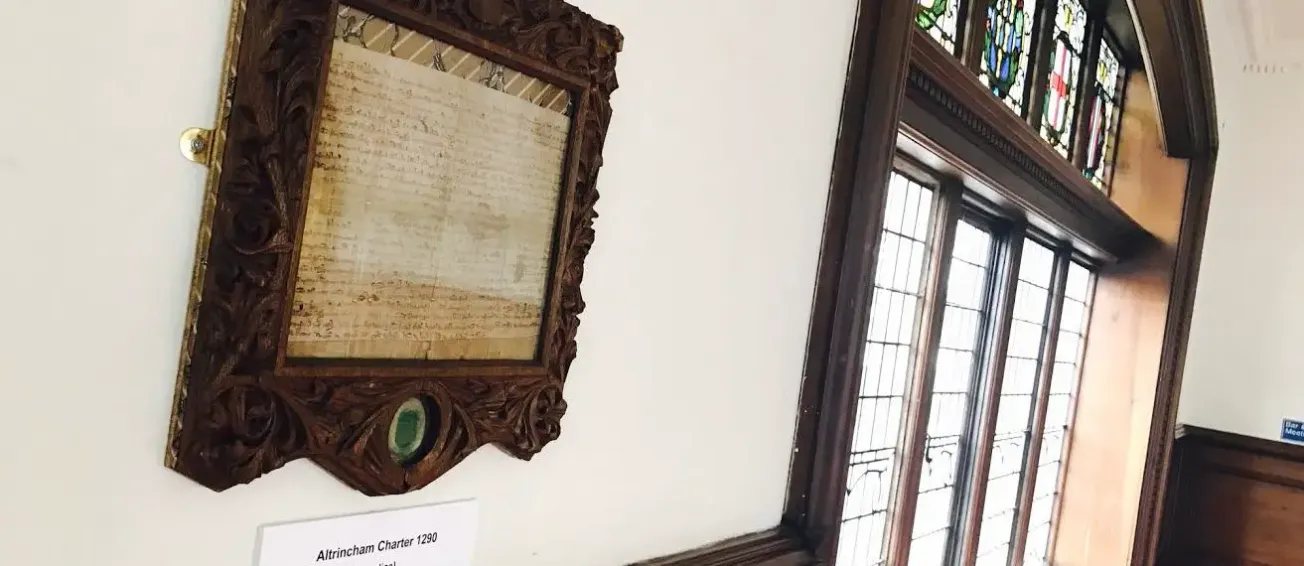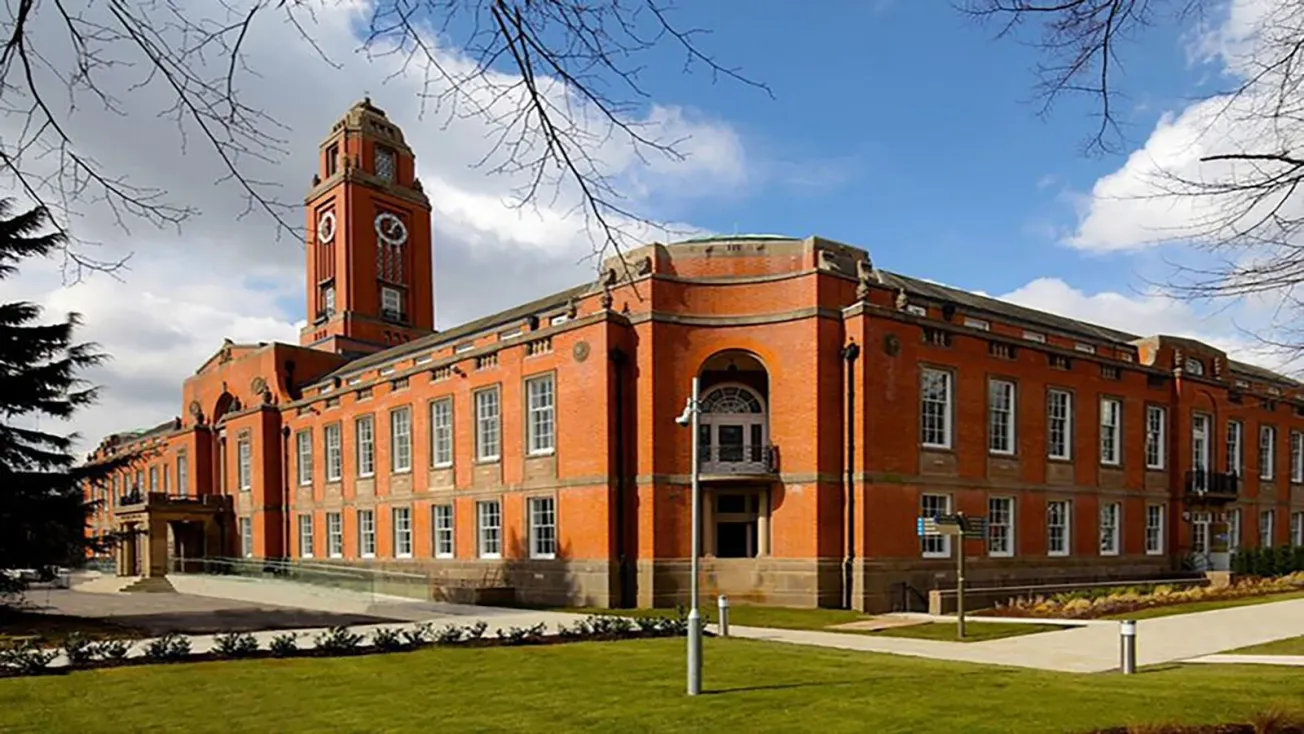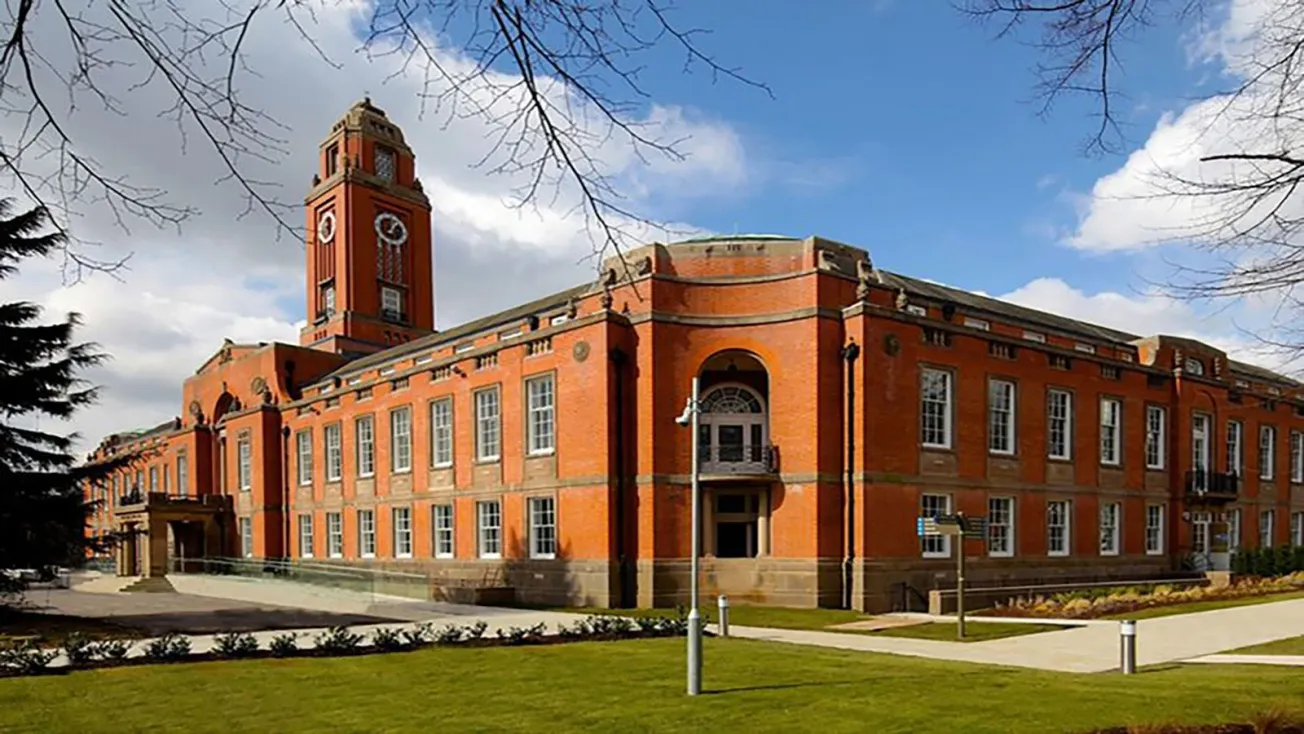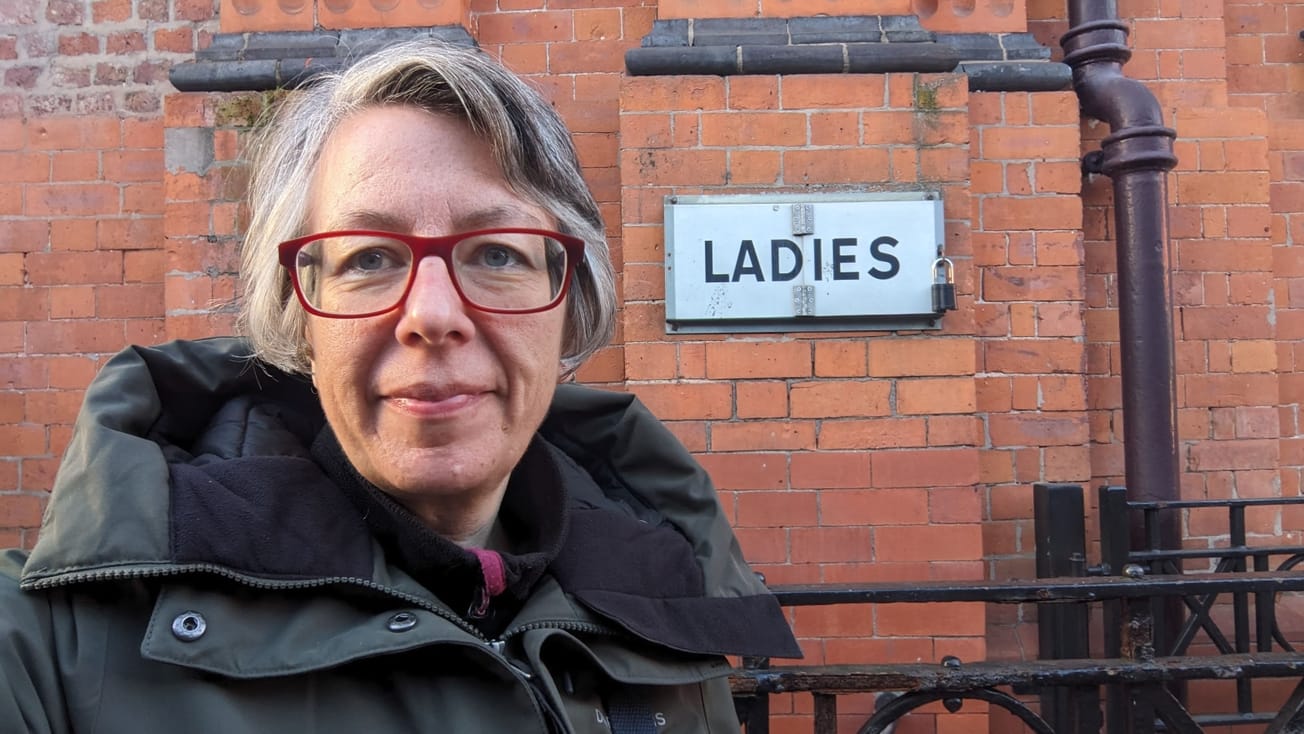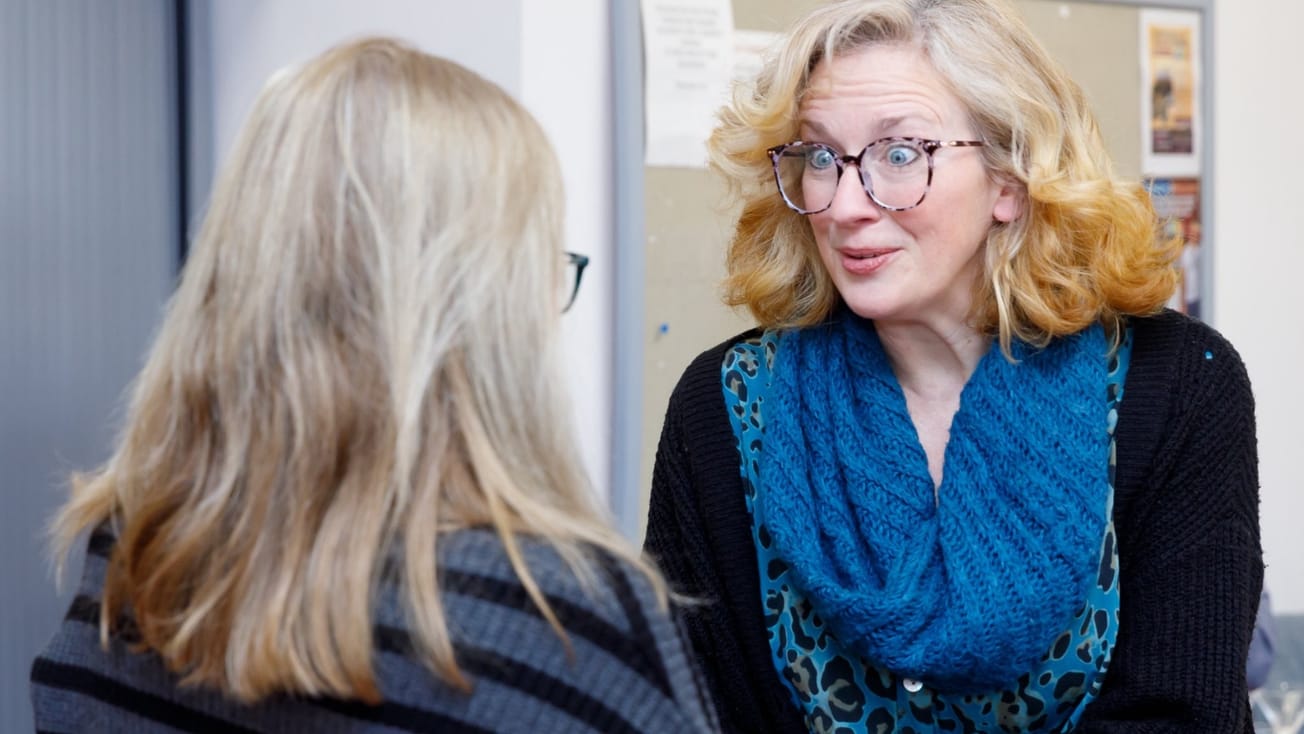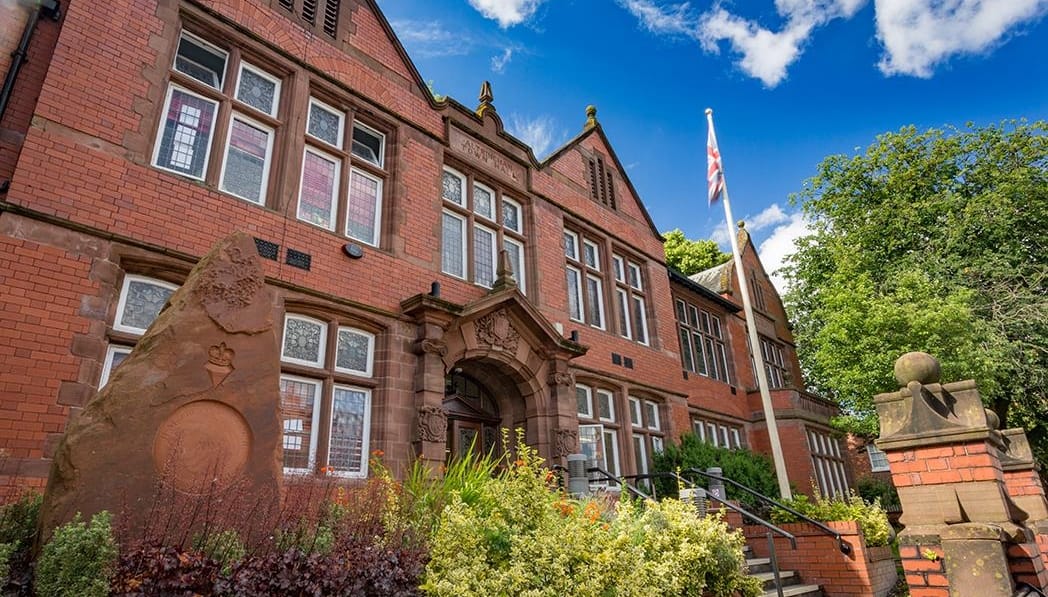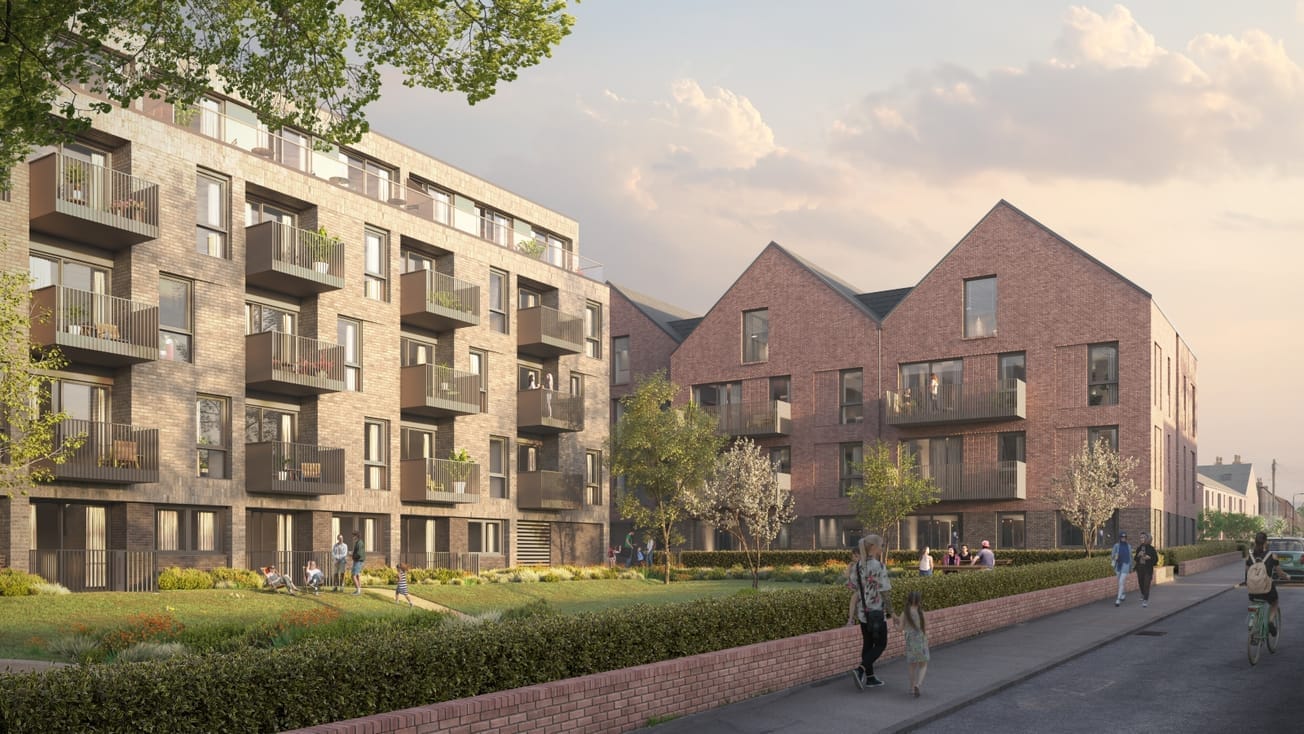A replica of Altrincham’s original 1290 Charter has been put on permanent display in Altrincham Town Hall.
It follows two months of painstaking restoration work on Altrincham’s original Charter by Nic Rayner, the Conservation Officer for Manchester Local Studies and Archives, who has also created the replica.
The Charter allowed Altrincham to become a Free Borough – a self-governing township – when it was granted a charter in June 1290 by the Lord of the Manor, Hamon de Massey V.
The Charter also allowed for the creation of a merchants’ guild, run by the town’s burgesses to tax people passing through the borough. The borough was ruled by a Court Leet and among its responsibilities were keeping the public peace and regulating the markets and fairs.
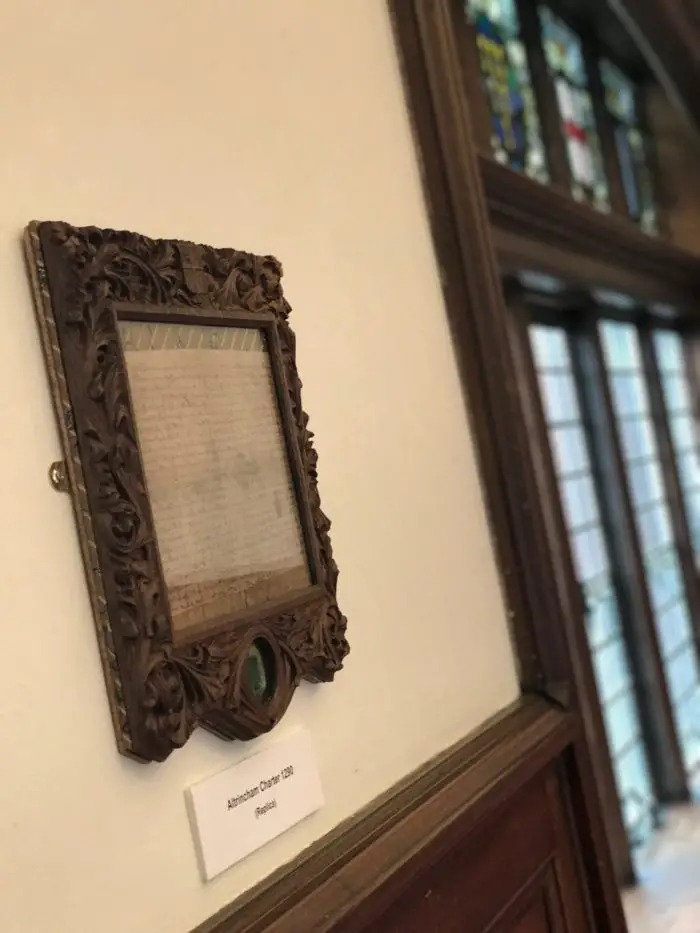
The original document can now be safely stored in properly controlled archive conditions to ensure it survives another 700 years.
The restoration was made possible by Trafford Council’s partnership with the Archives and Heritage Service, which operates across all Greater Manchester libraries.
Here are the actual words on the Charter:
To all faithful people in Christ that shall see or hear this present charter, Hamon de Massey, Lord of Dunham, sends greetings everlasting in the Lord. Know you that I have granted and by this present charter, on behalf of myself and my heirs, have confirmed to my burgesses of Altrincham, that my town of Altrincham be a free borough, and that my burgesses of the same borough, shall have a guild merchant in the same borough with the same liberties and free customs pertaining to such manner of guild, according to the customs of Macclesfield. And they shall be quit throughout all my lands, as well by water as by land, of toll, passage, pontage, stillage, lastage, and all other servile customs.
Also I have granted to my said burgesses common pasture, and turbary of the heath, within the boundaries of Dunham, Altrincham and Timperley, saving to myself and my heirs our improvements and saving to myself and my heirs the enclosure of Sinderland at our free will, without contradiction of any person, whensoever we think fit to enclose the same, so that the aforesaid burgesses may have common pasture, always and everywhere for all cattle within the bounds of Sinderland so long as the aforesaid place of Sinderland shall not be enclosed, saving to myself and my heirs the whole season of pannage in the aforesaid Sinderland, so that at the season we shall have at our will to fence in the aforesaid Sinderland without contradiction of any persons. And when the aforesaid Sinderland shall be enclosed, my burgesses shall have their common up to the hedge of the aforesaid Sinderland and not beyond.
It is also my will that all my burgesses who shall have pigs in season of pannage shall pay the customary toll in my said borough either at the feast of St.James or at the time of pannage when they pasture in the aforesaid commons, and they shall not go elsewhere with their pigs of the same borough at the season of pannage. Also I have granted to my aforesaid burgesses, housebote and haybote in all the woods of the aforesaid places, except my “hays” and enclosed woods. Also I grant to my aforesaid burgesses, that they shall not be impeded outside the portmote of the aforesaid borough, nor tried in any court outside their borough, for offences committed within the borough, and if any one of them becomes liable to amercement for any offence, he shall be amerced by his peers according to the degree of his offence.
It is my will also that my burgesses shall grind all their corn growing upon the land of Altrincham or stored in the same town, at my mills, giving every eighteenth measure as multure. I also grant that my aforesaid burgesses may take for themselves reeves and bailiffs by common councel of myself or of my bailiffs and themselves, and that no plea shall be held or determined in the said borough except before me or my bailiff. And that every burgess shall hold his own burgage of two perches of land in breadth and five in length, with one whole acre of land in fields, for twelve pence, to be paid to myself and my heirs at three times of the year by equal portions, namely at Nativity of St.John the Baptist, at the feast of All Saints and the Annunciation of the Blessed Virgin Mary, quit, peaceably and wholly, with the aforesaid liberties. And that every burgess may sell, mortgage, give or bequeath his burgage to any person or persons he wishes, except to the officers of our lord the King and men in religious orders, without contradiction of any person or persons, saving to myself and my heirs the privilege of our bakehouse in the same borough. Indeed, I the aforesaid Hamon and my heirs will guarantee forever the aforesaid burgesses and the acres of land adjoining them and all liberties recorded above, to my aforesaid burgesses and their heirs and assigns against all people. In witness whereof I have set my seal to this present charter.
Witnessed by Sir Reginald de Grey, then justice of Chester, Humphery de Beauchamp, and Richard de Massey, Knight, Gilbert de Aston, Thomas de Aston, Hugh de Baguley, Matthew de Hale, Henry de Dunham, John de Bowdon and others………

